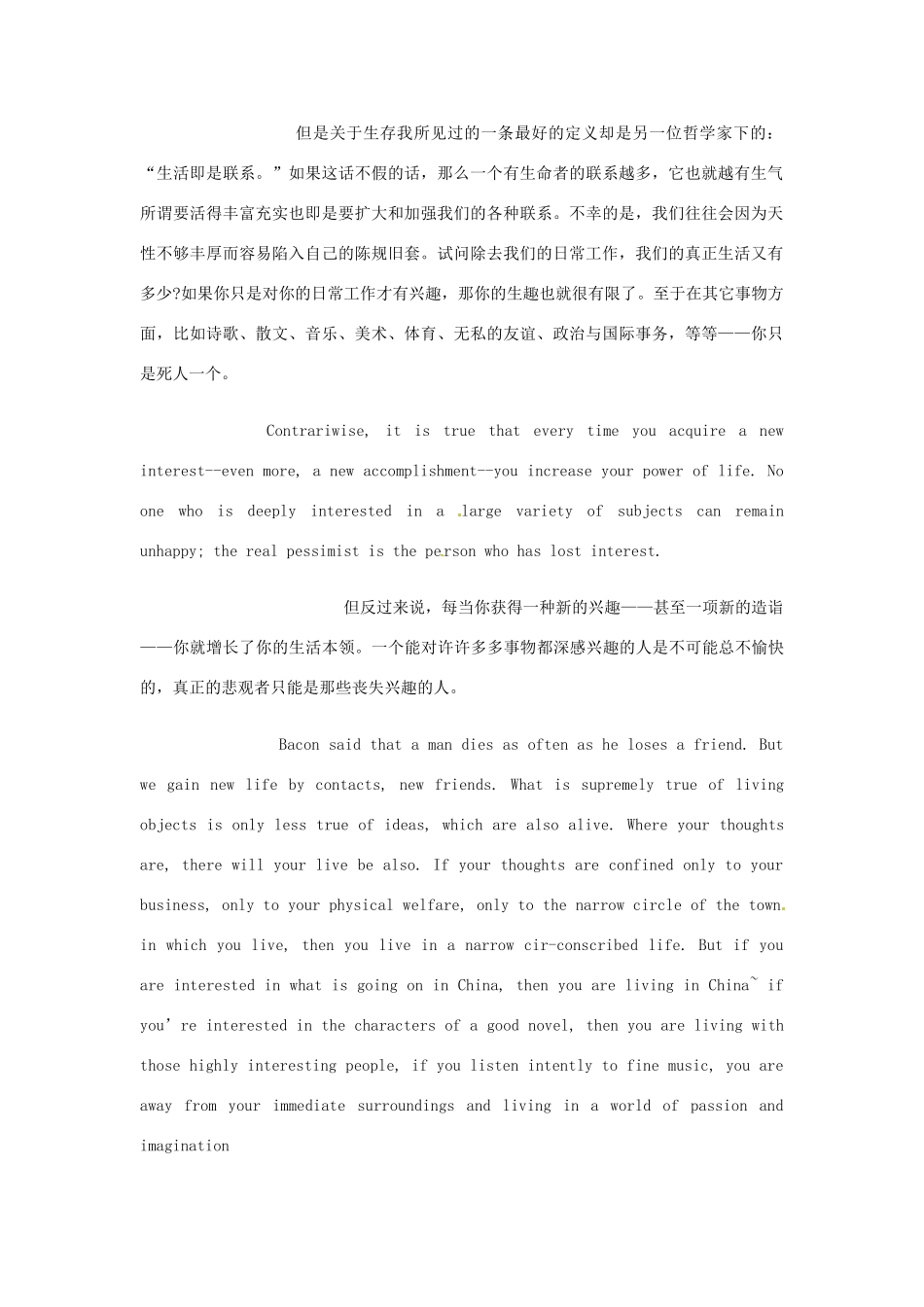生存还是毁灭Outside the Bible, these six words are the most famous in all the literature of the world. They were spoken by Hamlet when he was thinking aloud, and they are the most famous words in Shakespeare because Hamlet was speaking not only for himself but also for every thinking man and woman. To be or not to be, to live or not to live, to live richly and abundantly and eagerly, or to live dully and meanly and scarcely. A philosopher once wanted to know whether he was alive or not, which is a good question for everyone to put to himself occasionally. He answered it by saying: "I think, therefore am." “生存还是毁灭。”如果把《圣经》除外,这六个字便是整个世界文学中最有名的六个字了。这六个字是哈姆雷特一次喃喃自语时说的,而这六个字也就成了莎士比亚作品中最有名的几个字了,因为这里哈姆雷特不仅道出了他自己的心声,同时也代表了一切有思想的男男女女。是活还是不活——是要生活还是不要生活,是要生活得丰满充实,兴致勃勃,还是只是活得枯燥委琐,贫乏无味。一位哲人一次曾想弄清他自己是否是在活着,这个问题我们每个人也大可不时地问问我们自己。这位哲学家对此 的答案是:“我思故我在。” But the best definition of existence ever saw did a nother philosopher who said: "To be is to be in relations." If this true, then the more relations a living thing has, the more it is alive. To live abundantly means simply to increase the range and intensity of our relations. Unfortunately we are so constituted that we get to love our routine. But apart from our regular occupation how much are we alive? If you are interest-ed only in your regular occupation, you are alive only to that extent. So far as other things are concerned--poetry and prose, music, pictures, sports, unselfish friendships, politics, international affairs--you are dead. 但是关于生存我所见过的一条最好的定义却是...


